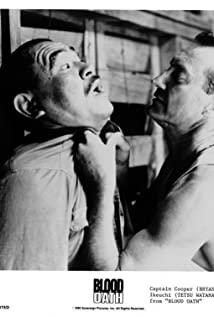It shouldn't be an exaggeration to say that movie fans themselves are lunatics, right?
(The article was first published on MTIME, ID: Fire Kirin ST)
"Why Hell is Bad" is definitely not the most artistic among Sono Ziwen's works. But it is the most refined and popular one among Yuan Ziwen's works, just because it has a unique entry point - a group of lunatics who love movies deeply.
A movie about a madman is not exciting and interesting enough to rely on a single story line. Sono Ziwen is well versed in this, and from the beginning, four story lines are launched in parallel:
The origin of the first story line: Several teenagers who love movies have not realized their movie dreams when they grow up. Facing their plight in reality, one of them quit angrily, and the others almost gave up...
The origin of the second story line: Muto's team leader Muto Sansan was approached by his nemesis. In order to protect her husband, Muto's wife started killing the retaliators and took her husband's place in prison. The interruption of the star journey has also caused a long-term conflict between father and daughter...
The origin of the third story line: After coming to the door to retaliate against the failure of the Muto family, the surviving Ikegami suddenly developed a Stockholm complex with Ayako. Although they only met once and parted ways, Ikegami has since become Ayako's permanent fan of the brain...... .
The origin of the fourth story line: A diaosi man named Hashimoto has been Ayako's fan brother since he was a child. He has always regarded Ayako as his dream lover, until one day, Ayako, who has never seen Hashimoto, temporarily pulls him over to be her own" Messenger of Flowers"...
At two-thirds of the way through the film, these four story lines begin to intersect, and there is only one opportunity, and that is the movie - the film-loving quartet wants to realize the movie dream, Muto wants to help his daughter return to stardom by making a movie, and Ikegami wants to meet Ayako. , Hashimoto wanted to pretend to be the director to please the idol. A movie project that allows the four parties with different purposes to meet, and also creates a crazy chemical reaction between the four story lines, which begins to explode in the last thirty minutes of the film.
Behind this insane form is the pure and extreme love of each character: the love of the movie quartet for movies, Muto's love for his daughter and his guilt for his wife, Ayako's love for star dreams, Ikegami and Hashimoto's love for movies Ayako's love... No matter whether the movie they made in the film finally comes out, it definitely contains their strong love and hope. This is what a movie should be like: it is the presentation of dreams on the screen, the crystallization of light and shadow of the creator's love and enthusiasm. Without love and dreams, it is impossible to make a good movie, and even what is made is not a movie at all. It is not sincere enough to make a movie that just collages the elements of classic movies. What really touches people is the expression of love for movies that is beyond words, and Yuan Ziwen did it.
The reason why this film can make a true temperament is closely related to Yuan Ziwen's struggle experience. In fact, Yuan Ziwen is not a born "movie pervert" as people imagined in the past. He has also shot a lot of high-quality video works. At the beginning of the new century, the "Danger Factor" he shot is very similar to Iwai Shunji. But these works, not to mention the economic benefits, even the response is very small. Dream chasers have to eat too! Sono Ziwen later made some film and television works mixed with violent and pornographic leftovers for the purpose of venting and making money. However, at this stage, Sono Ziwen still did not forget his original intention, even in the "Exposure of Love" interspersed with soft pornography. It also reflects his pure artistic pursuit. The later "Mediocre" rarely brought Sono Ziwen back to his original state, but this film, which was recognized by the Venice Film Festival, made people question Sono Ziwen's "deterioration", which is really a great irony for Sono Ziwen. The 2013 "Why Hell is Bad" is a compromise between Sono Ziwen's personal expression and the audience's G point. While satisfying the common climax between the audience and the characters, he also completed the sincere feelings he wrote for the film. A love letter, although this love letter ultimately ends with "dreams return to dreams, and reality returns to reality".
Our Chinese cinema films are definitely not allowed to shoot such bloody and violent scenes in "Why Hell is Bad", but there are films with true temperament that can really resonate with the audience, right? Can creators who maintain a sincere and love for their films and their audiences have? But what we see is that the box office revenue of Chinese cinemas is getting higher and higher, but good films are becoming more and more scarce; more and more people are making movies, but there are fewer and fewer young people who take movies as their ideal hobby... ...As for those netizens who shouted "you can do it", "do you know how hard they work", "do you understand art", do they really have true love for movies?
At the end of the film, Hirata, one of the four fans of the film, cheered and ran on the road while holding the film negative. This is also a rare outbreak after a long period of repression by a person who has not been able to realize his dream for a long time. If he appeared in real life, and uninformed others saw it, they would usually conclude that this guy was a lunatic. It's just that there are countless creatures in the world that benefit society, aren't many of them also from the hands of such "madmen"?
View more about Why Don't You Play in Hell? reviews











